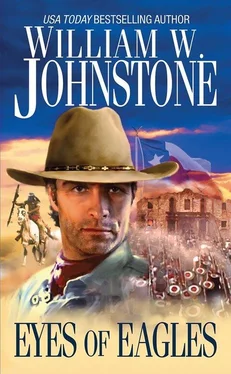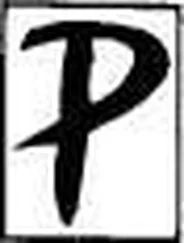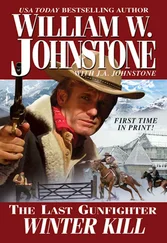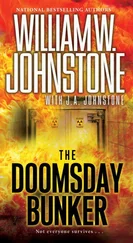“Yes. Badly hurt. Long way off.”
“I’ll go with you, Kate,” Sam said.
“You stay here,” Egg told him firmly, in a tone that Sam had learned meant the subject was closed. “No one will bother us. I have man with me to drive wagon. We leave in one hour.” He looked at Kate. “No more faint. You must be strong. Move!”
* * *
Houston now had about a thousand men. He could never be sure because of the desertions and new additions that were arriving every day. Houston formed a cavalry unit, and assigned men to man the cannon, of which he had six, all mounted.
Meanwhile, Santa Anna had left San Antonio and joined up with General Sesma. It made for an awesome force of trained, combat-experienced soldiers. Santa Anna felt confident that this time, he would drive every American out of Texas... or kill them where they stood.
Then he made a fatal mistake.
He split up his huge army into several groups. He sent over twelve hundred troops to the south, about nine hundred to the north, and he took personal command of a select group of infantry and cavalry and crossed the Colorado river — his objective was San Felipe.
That move was to be Santa Anna’s Waterloo.
* * *
On April 21st, 1836, Kate arrived at the home of the Mexican couple who had cared for Jamie. On that same date, far to the east, Houston and his army were preparing to meet Santa Anna’s troops in the battle that would turn the tide for Texas independence.
Kate knelt down beside the wasted body of her husband and let her tears bathe his face. Jamie was alive and conscious, but his hideous wounds had ravaged him. He had lost about seventy-five pounds and was only a shell of what he had once been.
But he was alive.
Kate pressed a hundred dollars in gold coin into the hands of the Mexican couple. They gasped at the money. That was a small fortune. They had never seen so much money. They tried to return it, but Kate would have none of that.
“I wish I had more to give you,” she told them in Spanish. “You have done so much. I could never repay you all that I owe you.”
Jamie was so weak he could scarcely speak. For the fevers, more than his wounds, had nearly killed him. Egg picked him up in his arms and carried him to the wagon — the bed had been filled with straw — and gently placed the man on the softness.
“Now we go home,” the huge Cherokee said.
Forty-seven
Far to the east, between a bayou and the San Jacinto River, Houston was preparing to launch the battle that would finish Santa Anna’s reign of terror in Texas.
The battle cry of the Texans was, “Remember the Alamo, Remember Goliad.”
Houston’s men had blood in their eyes and slaughter on their minds. And that is exactly what it would turn out to be for the Mexican troops.
On the 20th of April, Houston’s men and the Mexican troops exchanged a few rifle shots and that was about all. The Mexican army was well-dressed in their colorful uniforms. Houston’s men were dressed mostly in rags, for their clothing had taken a beating during the long days and nights of marching. Their clothing was tattered, but their spirits were high.
Santa Anna viewed the newly formed army of Texans with contempt. His scouts had told him they were filthy, all dressed in rags, had no food, and the mounts of their small cavalry unit were scrawny and looked as though they had not been fed in days.
“We shall send them fleeing for their lives with the first charge,” Santa Anna was told.
“Very well,” Santa Anna said. “In the morning we shall finish with this distasteful business and then make ready to go home.”
They were going to go home, all right. To their maker.
On the afternoon of the 20th of April, Houston knew he could contain his men no longer. To do so would light the spark of insurrection, for his men were ready for a fight and his commanders had told him their men were, by God, going to fight, whether Houston liked it or not.
The thinly timbered field of San Jacinto was all that separated Houston’s army from Santa Anna’s army. At about three o’clock that afternoon, Houston gave the orders: Move out. But do it silently. The Army of Texas moved out, silently as ghosts, flitting through the timber, advancing to the open field where the Mexicans were camped. The cannon were being pulled along by men to cut down on the noise horses might make.
Santa Anna was asleep in his tent.
About two hundred and fifty yards from the huge encampment of Mexican soldiers, many of them resting, Houston shouted, “Remember the Alamo. Remember Goliad!”
Houston’s small battery of cannon roared, shattering the tranquility of the balmy afternoon.
Many of the men had lost friends at the Alamo and at Goliad. They screamed out the names of the dead and opened fire with their rifles.
The Mexican Army was caught flat-footed. Why Santa Anna’s guards had not detected the advancing Texas army remains a mystery. But they did not. Many of the Texans had moved into a position only a few yards from the sprawling Mexican army and the afternoon turned into a slaughter. Houston’s fifers were tootling and the drummers were pounding as the startled and frightened Mexican army sprang to their feet and grabbed rifles. Santa Anna’s cavalry, the dragoons, ran for their horses, which were not saddled. Houston’s cavalry galloped into the Mexican camp, their sabers flashing in the afternoon sun. Within seconds, the sharpened steel was dripping with blood, and blood splattered the clothing of Houston’s cavalrymen and their mounts. The Texan cavalry rode down many of the panicked Mexican soldiers, the hooves of their mounts smashing the life from the soldiers.
Santa Anna was in the saddle, waving his sombrero, attempting to rally his men. “Fight them, goddamn you!” he shouted, his voice just audible over the howling din of battle and the cries of badly wounded men.
But his men were in panic. They looked for their leaders and could not find them. The advancing line of Texans was about three quarters of a mile long and coming at a run. It must have seemed to the Mexican soldiers to be an endless line of soldiers. It was not; it was a very thin line but Santa Anna’s troops did not know this. It was not the Mexican policy for the officers to share much intelligence with line troops.
The Mexican soldiers went into total panic and confusion. They began running in all directions and Houston’s men chopped them down. The battle turned into a slaughter.
Houston had his horse shot out from under him. He swung into the saddle of a riderless Mexican horse and had that animal shot out from under him. On foot, he was felled by a musket ball to his left leg, knocking him to the ground, the bullet breaking his leg. He crawled into the saddle of yet another horse and rallying some men, led a charge, waving his sword. Houston leaped his horse into the fray. Swinging his sword, he beheaded a Mexican colonel and turned in the saddle just in time to see a Mexican general riddled with bullets from the rifles of the Texans.
“Let them surrender!” Houston shouted. “They’re trying to surrender, boys!”
But the Texans were having none of that. The blood-splattered walls of the Alamo and the terrible slaughter at Goliad were too fresh in their minds. The Texans went after Santa Anna’s men with a vengeance. They gave no quarter as they ripped and shot and slashed their way through the Mexican lines.
Santa Anna and many of his senior staff officers managed to escape in all the confusion. As one sergeant in the Texas Army put it, “They took off like their asses was on fire!”
The actual battle lasted just over fifteen minutes. But the blood lust was hot in the veins of the Texans, and they more than got their revenge for the slaughter at the Alamo and at Goliad. To say the men under Houston’s command went berserk would be putting it mildly. They were bent on killing and nobody was going to stop them.
Читать дальше









